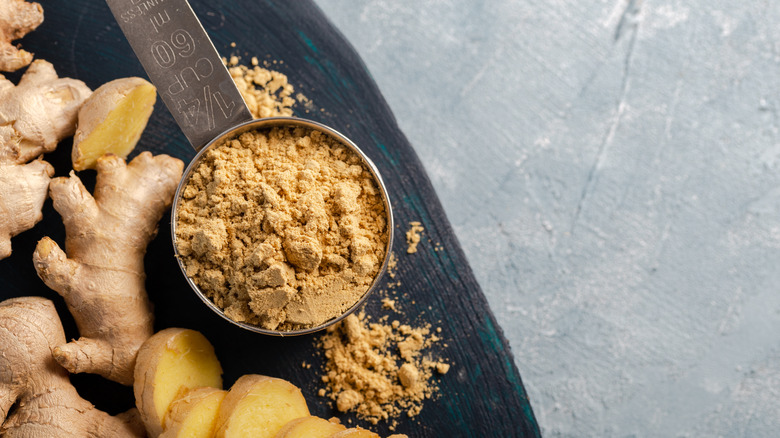Can Ginger Help With Heartburn?
Ginger is an incredibly versatile ingredient. It goes well with just about everything from fish to salads to beef. And as one 2019 study from Food Science and Nutrition pointed out, the polyphenols in ginger may help guard against certain types of cancer. Their findings are echoed in other recent studies published in journals like Nutrition and Cancer. Such studies have found that polyphenols may help prevent or reduce the damage cancer does to a person's DNA. The research is still in its earliest stages, but it is a promising avenue for future cancer treatments.
As the same Food Science and Nutrition study noted, ginger has been used for centuries in a variety of medications. The study found that a daily dose of 1500 mg of ginger could be useful against nausea and vomiting during pregnancy, while not posing a risk for side effects. Although ginger may be able to help prevent cancer and treat nausea, surprisingly, it may worsen other conditions.
It varies by dosage
A 2020 medical review on ginger root found that certain doses of ginger can actually make certain conditions worse. The review noted that high doses of the root at 6 grams daily (2 grams more than the FDA-approved daily amount) can actually exacerbate heartburn, GI reflux, or diarrhea. That is roughly equivalent to a teaspoon of straight ginger, an amount most people aren't likely to ingest in one sitting.
Small doses of ginger, and throughout the day, may be the key in alleviating heartburn, along with easing swelling or preventing muscle pain, according to Healthline. While minor side effects include bloating or gassiness, ginger may still help alleviate heartburn, which is actually a symptom of acid reflux, per Huffpost. Aside from taking ingesting it raw (shredded or diced, for example), ginger can be ingested in capsule, powder, oil, or even tea form (via Healthline).


